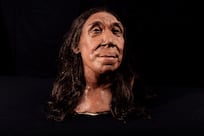My job is to teach grade four students at Al Jood School in Al Ain, and as a teacher, I have to be creative every day to try to inspire my students in their learning. But the story of how I came to be accepted into the Abu Dhabi Music & Arts Foundation and British Council's joint Cultural Excellence Fellowship programme begins before that, when I was a secretary in the mass-media department at UAE University.
Representatives from Admaf were giving workshops for students on a young media-leaders programme, and I became a friend for this programme. After that, I attended Abu Dhabi Festival, and wrote articles which were published by Admaf. So when I heard about this programme, I applied in December.
The programme, which began in January, takes place on the second Saturday of every month, which means I can combine it with my teaching.
We started the programme with an introduction to culture and art, why they are important and how we can reinforce them in our society. The aim is for us to build a business project that integrates arts and culture. We have different guest speakers, each of whom aims to enrich our knowledge about art and business, how we can add creativity and innovation to business and how to add a human touch. We think about how business people look at art and how artists view businesspeople.
Before the fellowship began, I didn’t ever think about business and art together, but now I can see how we can integrate the two, and if we can do this, then we get art, creativity and innovation in our businesses strategies.
Now, I see myself as being both an artist and a businesswoman. I’m doing my master’s in business administration, and at the same time, I’m a teacher. I also like to write stories, and this is what makes me more of an artist.
As a teacher, my focus is children's literature, so when I'm teaching a new concept – especially if it's science-themed – I try my best to explain it by writing a story. Just something simple for the students to understand. I have done this recently with electricity and the environment. One of the books I wrote is called A Very Green Eid, which is about how we can celebrate Eid and have fun, but at the same time we can keep the environment clean and pristine. The book will be available in the students' library.
I love the idea of opening up opportunities for young writers in the UAE to create literature for children to read at school, so they understand science better and can be inspired by it.
At Abu Dhabi Education Council, we have teachers from around the world who are teaching English, maths and science in English. We need to use stories in the lessons to make these concepts easier for the learners to understand. When it comes to publishing, we don’t need to use expensive paper or ink. For my own books, I just write the story then add my own sketches.
At the end of the fellowship, we have to draw up a business plan, which will be judged by a jury of experts. I recently joined a programme at Hamdan bin Mohammed Smart University about nurturing talented students. My business plan will be about opening a school for gifted students – Emiratis and expats – because learning is for everyone. I see talented students at the school where I work, but they need the tools to enrich their knowledge.
* As told to Jessica Hill
Fawzeya Nasser Al Blooshi is one of 17 Emiratis on the Cultural Excellence Fellowship programme. The first of its kind in the UAE, the fellowship is an 18-month skills-development and mentorship programme that aims to equip creative entrepreneurs and cultural leaders to make a significant contribution to the shaping of the UAE’s cultural and creative industries towards 2030.
If you have a good story to tell or an interesting issue to debate, contact Amanda Tomlinson on atomlinson@thenational.ae.




